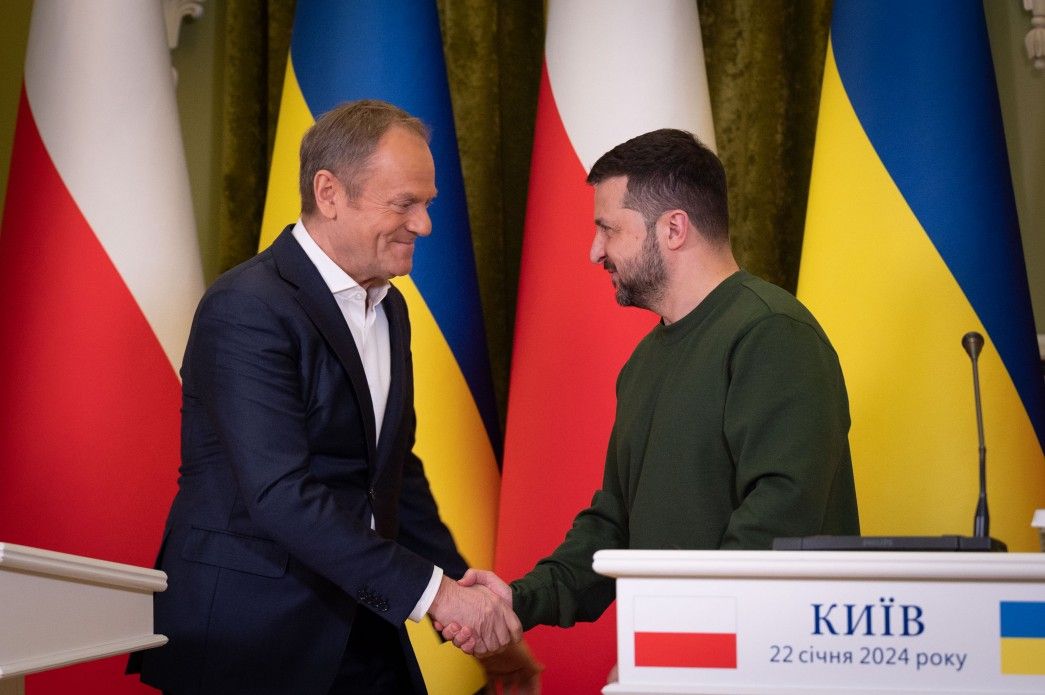Polish farmers begin protest against Ukrainian agricultural imports

Polish farmers began widespread protests across the country on Jan. 24 against the import of products from Ukraine and other non-EU countries, Polish media reported.
The outbreak of protests, which was announced last week, comes on the heels of a several-month-long series of demonstrations and border blockades by Polish truckers, who said that the liberalization of permits for Ukrainian truckers had hurt their domestic businesses.
The farmers' protests center around a similar set of grievances. Both farmers and activists claim that the ability of countries outside of the EU, including Ukraine, to export agricultural products without being subject to the same level of EU regulations hinders Polish farmers' ability to remain competitive.
"We cannot compete with Ukraine, so we expect, among other things, to introduce quotas that existed before the war. Ukrainian grain should go where it belongs, to the Asian or African markets, not to Europe," said Adrian Wawrzyniak, a spokesperson for the Polish farmers' trade union, in an interview on Jan. 18.
The protests have occurred in over 200 places throughout Poland, the Polish media outlet RMF24 reported. Farmers have taken to the streets with tractors and other agricultural equipment and blocked roads.
Some in Poland have characterized the protests as more of a political act organized by activists than a genuine grassroots effort from Polish farmers.
Jerzy Plewa, a former deputy agriculture minister, said to RMF24 that the protests were not a "spontaneous" action by farmers, but a move by some activists to gain credibility with the Polish agricultural sector, with an eye on upcoming elections.
The Jan. 24 protests have occurred on a larger scale than previous demonstrations but are related to the same concern that the Polish government has not done enough to protect their livelihoods, despite an existing import ban on Ukrainian grain.
Polish Prime Minister Donald Tusk said in a press conference that he would seek a resolution to the issue that would not break EU rules and still be mutually palatable to both Polish and Ukrainian sides.
He also acknowledged that such an agreement would probably be "accepted with difficulty" by Ukrainians.
Poland's Deputy Agriculture Minister Michal Kolodziejczak visited the protesting farmers and said that he opposed the import of Ukrainian agricultural products to Poland that would "spoil the domestic market."
The new round of demonstrations came as the truckers' protest appeared to have at least been temporarily halted.
Polish truckers suspended their blockade of the border last week, lifting the closure of the final border crossing on Jan. 16.
In a meeting with President Volodymyr Zelensky in Kyiv last week, Tusk said that both sides "have reached a common understanding" regarding the truckers' protests.
"We understand the depth of the reasons that led to this kind of situation, but draw attention first and foremost to the depth of the threat that stands before our peoples," Zelensky added.













